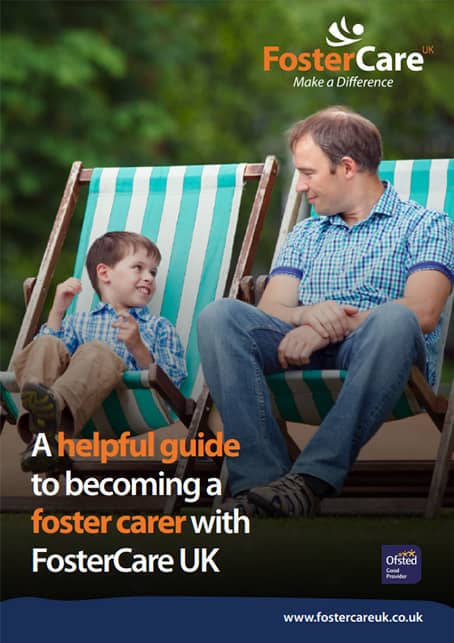


What happens when a child is taken into care?
Benefits of being a foster parent
What is a care leaver?
How to become a foster parent
How to foster a child
What are the foster care requirements
Can I choose who I foster?
Fostering with pets FAQ
How long does it take to become a foster parent?
What is the role of an independent fostering agency?
Fostering a disabled child
Tips for coping when foster placements end
Do foster carers pay tax?
What to expect in a fostering assessment
Common Fostering Challenges and Solutions
What disqualifies you from being a foster carer?
Muslim Fostering
Fostering as a single parent
Can you foster a child with a criminal record?
Can you work and foster?
Top 10 fostering myths
Can I foster if…?
Can I foster and rent?
LGBT Fostering: can I foster if I’m gay
Top transferable skills to become a foster carer
Can you foster with a mental health condition?
Christian Fostering
Sikh Fostering
Cultural Diversity in Foster Care
How to encourage foster children to read
Reasons for a child to be taken into care
Tips for coping with attachment disorders in Foster Children
Fostering vs Adoption
What happens when foster parents get divorced?
What is reunification in foster care?
How to deal with foster child bullying
A guide to the foster care handbook
Guide to fostering young children
Types of self-harm
A guide to fostering teenagers
What are the signs of depression in foster children?
An attachment disorder is not easy to deal with – for both foster parent and child. Attachment disorders are treatable - however, they are easier to treat when diagnosed early. Children who are not treated for this disorder may experience the effects throughout the rest of their life. So, as a caregiver, it is important you understand the signs and help them where you can.
Attachment disorders are a psychiatric illness which can develop in toddlers, young children or teenagers who struggle to develop emotional attachments. The two types of attachment disorder are:
Attachment disorders are regularly associated with parental behaviour - most children who suffer from attachment disorder have experienced poor parenting and, more often than not, some form of trauma. If a child has experience abuse or neglect or grown up in an institutionalised setting, such as an orphanage, they are more likely to develop an attachment disorder.
Attachment disorders develop differently for different children, so it is hard to truly determine the causes. It is common, and completely healthy, for children to develop an attachment to their caregivers and become anxious or stressed when they are apart. When your child does not display any emotion, or is too friendly, you should look at your behaviour or how they were treated by their past caregivers to determine why they are behaving the way they are.
An attachment disorder can manifest itself in many different ways – it is never the same in every child – meaning that it’s important to know the symptoms. This list is by no means exhaustive, but demonstrates the sorts of behaviours you might notice
When you foster with Foster Care UK, we can work with you to identify the necessary support require if your child displays symptoms of an attachment disorder. However, there are a few things you can do in and around the home to help them feel secure and settled:
Whether you are looking to become a foster parent or currently struggling with an attachment disorder in a current placement, FosterCare UK are here to help. Our extensive foster care training will give you all the tools you need to cope with any challenging situations. Contact us today for more information on attachment disorders in foster children.
If you’ve got any questions or would like to find out more about fostering with Capstone, fill out the form below.
An experienced fostering advisor from your local area will then be in touch.

Start the conversation today. Our team of friendly advisors are on hand to answer any foster care questions you may have. We can offer you honest and practical advice that can help you decide if becoming a foster carer is the right path for you.


